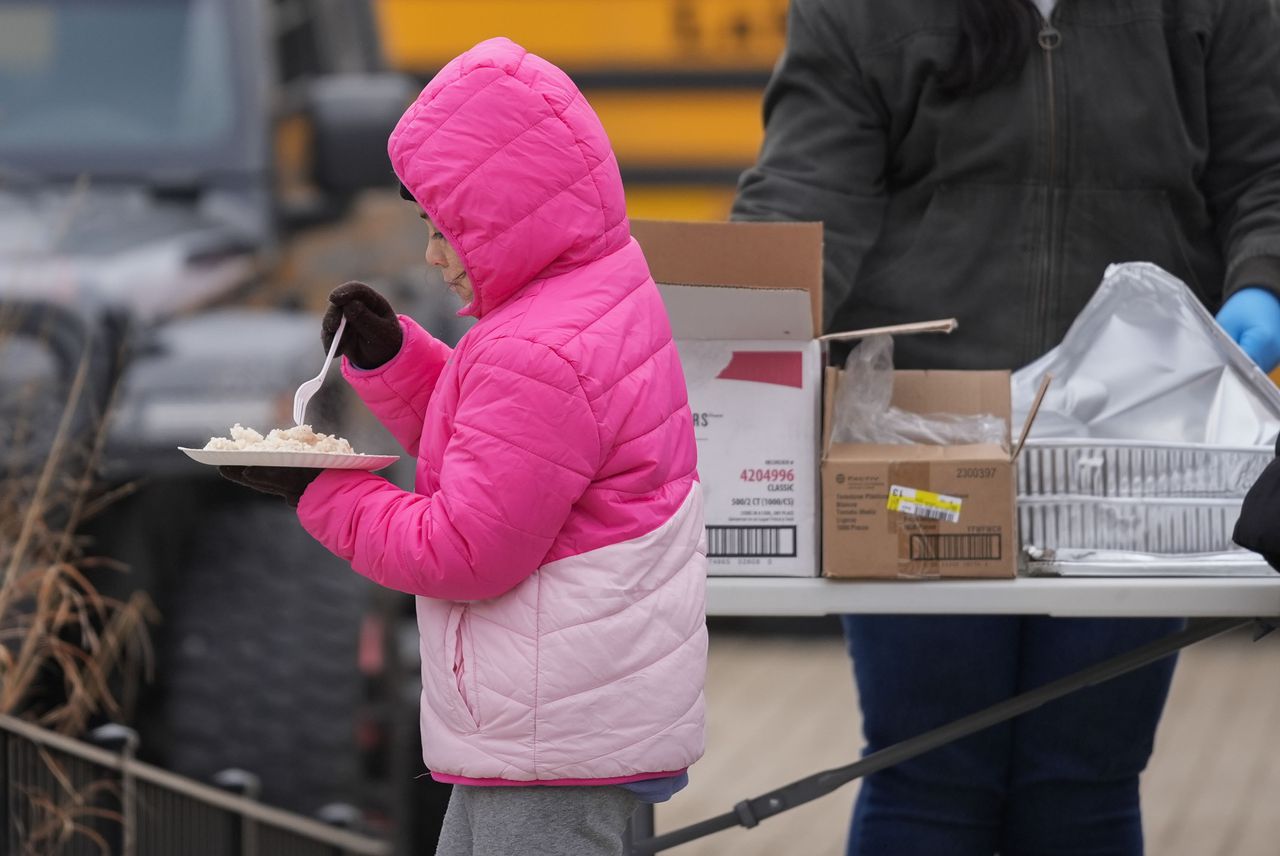Extreme cold stretches migrant advocacy groups, highlighting need for more resources
Major cities grappling with an uptick of migrants are now having to pivot and provide additional resources amid extreme winter conditions impacting much of the country.
An arctic blast caused temperatures to dip into the single digits or below zero in cities like Denver and Chicago. For advocates working with migrants, the winter cold snap only adds to the urgency.
Laura Lunn, the director of advocacy and litigation at the Rocky Mountain Immigrant Advocacy Network in Colorado, said the organization serves people currently detained by Immigration and Customs Enforcement in rural areas and helps unaccompanied minors and migrant families living in the state.
“The influx of migrants has really put resource allocation in a different light,” Lunn said. “It really highlights the need of legal service providers to have access to social workers so that we can provide wraparound support to people we’re representing because obviously their needs extend much further than just needing to show up to court.”
President Joe Biden has indicated at various times that he is willing to make concessions regarding immigration and border security, including expanding the new Family Expedited Removal Management (FERM) process, in ongoing negotiations to secure overseas aid, according to NBC News. Under FERM, officials closely track migrant families — such as putting the head of household in an ankle monitor — and fast-track the deportation process.
On Friday, Illinois Gov. J.B. Pritzker sent a letter to Texas Gov. Greg Abbott asking that he stop sending migrants to the Upper Midwest ahead of expected severe winter conditions in the coming days.
“Your callousness, sending buses and planes full of migrants in this weather, is now life-threatening to every one of the arrivals,” he said in the letter.
The National Weather Service said “brutal cold” temperatures would return to typical winter conditions mid-week, but with another arctic blast expected to quickly follow. By Thursday, the Northern and Central Plains will experience below average “frigid” temperatures, and conditions will continue spreading southward with another weather system bringing chances of snow in the Midwest.
In Colorado, temperatures dropped to single digits with wind chills below zero. Gov. Jared Polis issued a disaster declaration last week and extended warming shelter capacity and hours through this Friday.
“No one should freeze to death in our state for lack of shelter. We are working with cities and local communities to ensure that everyone has a warm place to go during this extreme cold snap,” Polis said in a statement.
Lunn said weather conditions have made case management more difficult, especially under FERM — which allows the deportation of migrant families out of the country within 30 days, sending them back to potentially dangerous conditions back home.
“People in shelters are having to show up to court to fight immigration cases at the same time that they might experience severe instability in housing,” Lunn said. “And with the cold snap recently, it’s more challenging for folks to represent themselves in court while they’re also simultaneously trying to make sure they have a warm place to stay.”
Denver Mayor Mike Johnston announced that he will travel to Washington, D.C. this week to continue urging legislators to help cities manage the influx of migrants bussed from the southern border. In October, Johnston, Chicago Mayor Brandon Johnson and the mayors of Houston, Los Angeles and New York City sent Biden a letter asking for more federal help.
Chicago city officials last week activated an emergency plan for extreme cold weather with temperatures dropping as low as -40 degrees and possible wind chills of -20 degrees.
In anticipation of the freezing conditions, the city opened a new state-supported migrant shelter at the former site of a CVS in the Little Village neighborhood. The location will house about 220 people, with priority given to families and people with disabilities, officials said.
Chicago and New York City officials on Tuesday released a letter sent to the Department of Homeland Security asking for federal funding to help cities across the county support the rising numbers of asylum-seekers.
“Let’s be clear: The right to seek asylum is a federal obligation and the federal government should be paying a far, far greater share,” said New York City Comptroller Brad Lander in a statement. “We are asking the federal government to waive bureaucratic documentation requirements… and send out these long overdue — if still far too small — checks.”
Amidst the urgency of providing services in frigid weather, the city of Chicago is also facing a lawsuit. On Wednesday, Wynne Transportation, a Texas-based bus company that has transported migrants to the city, sued over an ordinance that controls when and where drop-offs happen, claiming that it interferes with state commerce, the Chicago Sun Times reported.
